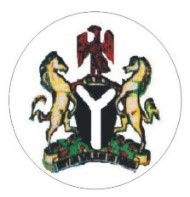Blog
ENGAGEMENT OF CONSULTANT FOR DEVELOPMENT OF RESEARCH BRIEFS FROM FINDINGS OF DISSEMINATED RESEARCHES



ENGAGEMENT OF CONSULTANT FOR DEVELOPMENT OF RESEARCH BRIEFS FROM FINDINGS OF DISSEMINATED RESEARCHES
11th November, 2025
- Preamble
HIV/AIDS remains a critical global public health challenge, with significant strides made in prevention, treatment, and management over the past few decades. Research findings from various studies contain valuable insights and data that can inform policy-making, drive innovation, and contribute to ending AIDS by 2030. However, the translation of research findings into actionable insights for policymakers, program implementers., and communities remains a persistent gap.
Research briefs serve as a vital tool to bridge this gap, transforming complex findings into concise, actionable insights for diverse stakeholders, including policymakers, practitioners, educators, and the public. By translating research into practical insights, research briefs can inform policy decisions, improve program implementation, and empower communities to make informed choices.
- Justification
Despite the wealth of HIV/AIDS research conducted in Nigeria, a significant gap exists between knowledge generation and its practical application. The dissemination of HIV/AIDS research findings often involves technical language and dense academic papers that may not reach or resonate with key stakeholders outside the research community. Research briefs provide a solution by simplifying these findings into clear, understandable summaries.
- Goal
The primary goal is to facilitate knowledge translation and utilization of HIV/AIDS research findings through the development and dissemination of research briefs.
- Specific Objectives
- To identify and prioritize disseminated HIV/AIDS research findings with high potential for impact on policy, programs, and communities.
- To develop clear, concise, and accessible research briefs that summarize key research findings and their implications.
- To tailor research briefs to the specific needs and interests of diverse target audiences (e.g., policymakers, program managers, healthcare providers, community members).
- Pre-qualification requirement
To qualify for consideration, interested consultants are required to submit CVs including the underlisted documents below:
- Cover Letter (Sign) – Unsigned cover Letter shall be automatically disqualified
- Recent copy of CV
- Copies of all qualifications certificate
- Relevant experiences and supporting documents
- Consultant profile
- Kindly fill the Annex A, B, C Forms below.
TERMS OF REFERENCE (TOR)
CAPACITY BUILDING FOR DEVELOPMENT OF RESEARCH BRIEFS FROM FINDINGS OF DISSEMINATED RESEARCHES.
- Background
HIV/AIDS remains a critical global public health challenge, with significant strides made in prevention, treatment, and management over the past few decades. Research findings from various studies contain valuable insights and data that can inform policy-making, drive innovation, and contribute to ending AIDS by 2030. However, the translation of research findings into actionable insights for policymakers, program implementers., and communities remains a persistent gap.
Research briefs serve as a vital tool to bridge this gap, transforming complex findings into concise, actionable insights for diverse stakeholders, including policymakers, practitioners, educators, and the public. By translating research into practical insights, research briefs can inform policy decisions, improve program implementation, and empower communities to make informed choices.
2. Justification
Despite the wealth of HIV/AIDS research conducted in Nigeria, a significant gap exists between knowledge generation and its practical application. The dissemination of HIV/AIDS research findings often involves technical language and dense academic papers that may not reach or resonate with key stakeholders outside the research community. Research briefs provide a solution by simplifying these findings into clear, understandable summaries.
3. Goal
The primary goal is to facilitate knowledge translation and utilization of HIV/AIDS research findings through the development and dissemination of research briefs.
4. Specific Objectives
- To identify and prioritize disseminated HIV/AIDS research findings with high potential for impact on policy, programs, and communities.
- To develop clear, concise, and accessible research briefs that summarize key research findings and their implications.
- To tailor research briefs to the specific needs and interests of diverse target audiences (e.g., policymakers, program managers, healthcare providers, community members).
- Scope of Work for Facilitator
Scope of Work
The facilitator’s responsibilities include, but are not limited to, the following:
Pre-Workshop Preparation
- Review selected HIV/AIDS research findings provided by the organization.
- Develop a detailed workshop agenda and methodology to achieve the objectives of the research brief development process.
- Prepare necessary tools, templates, and materials for the workshop, including guidelines for drafting research briefs.
- Consult with the organization to align on expectations, target audiences, and desired outcomes.
Workshop Facilitation
- Conduct a Four-day workshop to develop research briefs, employing a participatory and collaborative approach including, capacity building of staff on the principles and significance of Research brief development by the facilitator.
- Facilitate discussions to identify and prioritize research findings with high potential impact.
- Guide participants in drafting research briefs, ensuring clarity, conciseness, and accessibility.
- Provide technical support on structuring briefs, simplifying technical language, and tailoring content for specific audiences.
- Ensure methodological rigor and relevance in the development process.
Post-Workshop Activities
- Compile and review draft research briefs produced during the workshop.
- Provide detailed feedback and recommendations for refining the briefs to meet quality standards.
- Support the finalization of the research briefs, ensuring they are ready for dissemination.
- Submit a comprehensive report summarizing the workshop process, outcomes, challenges, and recommendations for future similar initiatives.
- Deliverables
The facilitator is expected to deliver the following:
- A detailed workshop agenda and methodology (submitted at least one week before the workshop).
- Workshop facilitation materials, including tools and templates for research brief development.
- A copy of high-quality draft research briefs developed during the workshop.
- A feedback report on the draft briefs with recommendations for finalization.
- A final workshop report (within one week after the workshop) detailing the process, outcomes, challenges, and recommendations.
- Qualifications and Experience
The facilitator should possess the following qualifications:
- Must possess at least a degree in public health, social sciences, communication, or a related field.
- At least 3-5 years of experience in HIV/AIDS research, knowledge translation, or policy communication.
- Proven expertise in developing research briefs, policy briefs, or similar knowledge products for diverse audiences.
- Strong facilitation skills with experience leading participatory workshops.
- Excellent written and verbal communication skills, with the ability to simplify complex technical information.
- Familiarity with HIV/AIDS research studies is an advantage.
- Demonstrated ability to work collaboratively with diverse stakeholders.
- Duration and Timeline
The engagement will span approximately 20 non-consecutive days including pre-workshop preparation, a five-day workshop, and post-workshop activities.
- pre workshop preparation- 8 days pre workshop for planning and preparation of necessary documents to be utilized during the workshop.
- workshop- Four days’ workshop for the development of research briefs.
- post workshop deliverables- 8 days to produce final copies of briefs with recommendations for finalization and a final workshop report detailing the process, outcomes, challenges, and recommendations.
- GUIDELINE FOR SUBMISSION AND OPENING OF CVS
The detailed CV must be in English Language and submitted in two (2) hard copies one original & one copy) of the requested CV. The two copies shall then be enclosed and sealed in one (1) single outer envelope and clearly marked at the topmost right corner “Capacity Building of Research Staff on Research Ethics” and the Name, Address, Email and Phone Number of the Consultant boldly written at the back of the envelope, with acknowledgement to NACA office at the address below.
- Deadline for Submission: The deadline for the submission of proposal should not be later than Tuesday, 18th November, 2025 by 12 noon. The submission(s) received will be opened immediately after closing at NACA Conference Room in the presence of consultants that choose to attend.
- Kindly fill the Technical and Financial Forms below.
ADDRESS FOR INFORMATION AND SUBMISSION OF CVs
Attention:
Head Procurement
National Agency for the Control of AIDS (NACA)
Ground Floor Room 1.0
No. 3 Zinguinchor Street, Beside AEDC Office, Wuse zone 4, Abuja
Annex A
Cost Estimate of Services
(1) Remuneration
Rate /day Number of Days Total (currency)
in (currency)
(2) Reimbursables
Rate Units/Days Total
(a) (International)
(Local)
Travel + Taxi
(b) Local Transportation
(c) Communications
(d) Hotel Accommodation
Sub-total (2)
TOTAL COST
Physical Contingency (10%)
CONTRACT CEILING ……………….
Annex B
Activity Schedule
Activity (Work) periods
1st 2nd 3rd 4th 5th 6th 7th 8th 9th 10th 11th 12th
Annex C
Consultants Reporting Requirements
Reports Date
- Inception Report
- Progress Reports
- First Progress Report
- Second Progress Report, etc
- Draft Final Report
- Final Report
Scoring Citeria
Evaluation Criteria | Max. Points Allocated | |
S/N | Experience of the Firm | |
Specific experience of the Consultant relevant to the assignment. You must have at least 5 years of similar job experience: | ||
1 | Must possess at least a degree in public health, social sciences, communication, or a related field. | 25 |
2 | At least 3-5 years of experience in HIV/AIDS research, knowledge translation, or policy communication. | 30 |
3 | Proven expertise in developing research briefs, policy briefs, or similar knowledge products for diverse audiences. | 15 |
4 | Familiarity with HIV/AIDS research studies is an advantage. | 15 |
5 | Strong facilitation skills with experience leading participatory workshops | 10 |
6 | Demonstrated ability to work collaboratively with diverse stakeholders | |
GRAND-TOTAL | 100 | |
NOTES/DISCLAIMER
- Late submissions will not be accepted.
- NACA shall verify any or all documents and claims made by applicants and will disqualify consultants with falsified documents and claims.
- If it is determined that submitted documents and claims have been falsified, the consultant may face prosecution in a court of Law.
- NACA shall not be held responsible for any disqualified proposal as a result of any omission or deletion relating to the submission guidelines.
- This advertisement shall not be construe a contract to any Consultant, nor shall it entitle any Consultant submitting documents to claim any indemnity from NACA.
- NACA is not bound to shortlist any Consultant, and reserves the right to annul the bidding process at any time without incurring any liabilities or providing reason.
Signed
Management.
